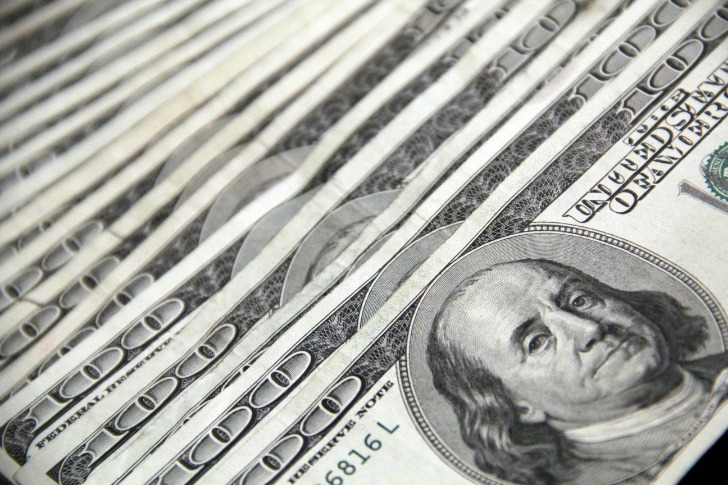Historical Overview of the Algerian Dinar
The Algerian Dinar, the official currency of Algeria, has a rich and complex history shaped by colonial influences, economic changes, and monetary reforms. Since its introduction, the dinar has played a vital role in the country’s financial system, reflecting Algeria’s independence and economic evolution. Understanding the historical development of the Algerian Dinar provides valuable context for exploring its current exchange rate with the US dollar and its significance in Algeria’s economy today.
Pre-independence Currency System
The Algerian Dinar (DZD) has a rich history that reflects the country’s colonial past and subsequent independence. Before gaining independence, Algeria’s currency system was shaped by its status as a French colony, with the French franc being the primary currency used in the region. This colonial monetary framework played a significant role in Algeria’s economic transactions during the early 20th century.
Prior to independence in 1962, the currency system in Algeria was largely integrated with France’s monetary policies. The French franc circulated widely, and the economic infrastructure was aligned with French standards. However, beginning in the late 1950s, efforts were made to establish a distinct monetary identity for newly independent Algeria.
Following independence, the Algerian government introduced the Algerian Dinar in 1964, replacing the French franc and other colonial currencies. The transition was aimed at asserting economic sovereignty and fostering national identity. The new currency was initially pegged to the French franc but gradually diverged as Algeria sought to develop its own monetary policy. Over the decades, the Dinar has undergone various reforms, including redesigns, exchange rate adjustments, and modernization efforts, to stabilize and strengthen the country’s economy amidst various political and economic challenges.
- French colonial currency era: French franc circulating in Algeria
- Shift towards independence: increasing efforts for a distinct Algerian currency
- Introduction of the Algerian Dinar in 1964: replacing colonial currencies
- Post-independence reforms: pegging, stabilization, and modernization of the Dinar
- Continued evolution: adjusting to economic needs and global currency standards
Introduction of the Dinar Post-Independence
The Algerian dinar (DZD) was officially introduced as the national currency of Algeria following its independence from France in 1962. Prior to independence, the region used the French franc and later the Algerian franc. The transition to the dinar was part of broader efforts to establish economic sovereignty and national identity. The initial issuance aimed to stabilize the economy and replace the colonial currency with a currency that reflected Algeria’s independence. Over the decades, the Algerian dinar has undergone several reforms, including redenominations and modernization efforts, to adapt to changing economic conditions and maintain stability against global currencies. As the country’s economy is heavily reliant on hydrocarbons, the value of the dinar in terms of USD is influenced by oil and gas prices, foreign exchange policies, and economic stability within Algeria.
Major Changes in Currency Policy Over the Decades
The Algerian Dinar (DZD) has experienced significant evolution since its inception, reflecting the country’s complex economic history and changing monetary policies. Introduced in 1964, shortly after gaining independence from France, the Dinar replaced the French Algerian franc at par, aiming to establish a national identity and monetary sovereignty.
During the early decades, the Algerian Dinar largely maintained a fixed exchange rate against major currencies, primarily pegged to the French franc and later to the euro, until the early 2000s. These policies aimed to ensure stability amidst economic fluctuations and political shifts. However, over time, the government began to adopt more flexible approaches to monetary policy, including liberalizing exchange controls to facilitate trade and investment.
Major changes occurred in the 1980s and 1990s, when Algeria faced economic challenges due to declining oil prices and internal conflicts. During this period, the currency experienced devaluations and multiple re-denominations to address inflation and stabilize the economy. Notably, in 1981, the Dinar was revalued, and in subsequent years, the government implemented measures to curb inflation and control exchange rates more tightly.
In the 2000s, Algeria shifted towards a more market-oriented monetary policy, gradually relaxing currency controls and allowing greater flexibility in the exchange rate system. The exchange rate was effectively managed through a managed float, providing some stability amid global economic shifts. The country also embarked on banking reforms to support the broader economic diversification efforts.
Despite these changes, the Dinar remains somewhat undervalued against the US dollar, influencing the exchange rate dynamics between the Algerian Dinar and USD. Ongoing economic reforms and adjustments to monetary policy continue to shape the value of the Dinar in relation to major global currencies, including the USD. The future trajectory of the Dinar will likely depend on Algeria’s economic diversification, oil prices, and monetary policy decisions made by the central bank.
Current Exchange Rate Dynamics
The exchange rate dynamics between the Algerian dinar (DZD) and the US dollar (USD) are influenced by a variety of economic, political, and global factors. Understanding these fluctuations is essential for businesses, investors, and policymakers as they navigate the economic landscape of Algeria. This article explores the recent trends and underlying factors shaping the currency exchange rate between the Algerian dinar and the US dollar.
Factors Influencing the USD/Algerian Dinar Rate
The USD/Algerian Dinar exchange rate is influenced by a complex interplay of economic, political, and external factors. As a key indicator of economic stability and international trade competitiveness, the rate fluctuates based on various dynamics affecting both currencies. In recent years, shifts in oil prices, which constitute a major part of Algeria’s revenue, have had a significant impact on the dinar’s value compared to the US dollar.
Economic indicators such as inflation rates, GDP growth, and foreign exchange reserves also play crucial roles in shaping the exchange rate. A strong US economy often leads to a stronger dollar, while political stability or instability within Algeria can cause fluctuations in the dinar’s value. Additionally, monetary policies implemented by both countries’ central banks, including interest rate adjustments and intervention strategies, influence currency demand and supply.
External factors like global investors’ confidence, geopolitical developments, and changes in international trade policies further impact the USD/Algerian Dinar rate. For instance, increases in foreign investment or aid can bolster the dinar, whereas sanctions or diplomatic tensions may cause its depreciation. Overall, understanding these intertwined factors is essential to grasp the current dynamics affecting the Algerian currency relative to the US dollar.
Market Trends and Recent Fluctuations
The current exchange rate dynamics between the Algerian Dinar (DZD) and the US Dollar (USD) have been influenced by a combination of global economic trends, regional political developments, and domestic monetary policies. Recent fluctuations reflect a cautious market atmosphere, with the Dinar experiencing periodic dips due to external pressures such as fluctuating oil prices, which constitute a significant part of Algeria’s economy.
Market trends indicate a gradual stabilization of the Dinar after periods of volatility, driven by interventions from the Algerian Central Bank and efforts to align the local currency with international standards. The exchange rate has been affected by external factors, including shifts in global dollar strength and regional economic stability, leading to fluctuations in the Dinar’s value against the USD.
Recent fluctuations have seen the Dinar depreciate slightly against the US Dollar, aligning with broader emerging market trends where currencies face pressures from global interest rate changes and commodity price shifts. Despite these movements, the Algerian government continues to implement measures aimed at maintaining monetary stability and supporting economic resilience amidst ongoing global uncertainties.
Official Exchange Rate vs. Market Rate
The exchange rate dynamics between the Algerian Dinar (DZD) and the US Dollar (USD) reveal significant differences between the official exchange rate set by the government and the market rate determined by supply and demand. The official rate is often maintained at a fixed or semi-fixed level to stabilize the economy and control inflation, but it may diverge from the true market value due to governmental policies and interventions. Conversely, the market rate reflects the real-time value of the Dinar in foreign exchange markets, influenced by economic factors, political stability, oil prices, and foreign investment flows. In recent years, Algeria has experienced a widening gap between the official and market rates, leading to a dual exchange rate system. This disparity can impact foreign investment, import-export competitiveness, and inflation, highlighting the importance of understanding both rates to grasp the overall currency dynamics within the country. Monitoring these rates provides insight into Algeria’s economic health and its relationship with international financial markets.
Economic Factors Affecting Currency Value
The value of a country’s currency is influenced by various economic factors that reflect the nation’s overall economic health and stability. When examining the currency exchange rate between the Algerian dinar and the US dollar, understanding these underlying economic elements becomes essential. Factors such as inflation rates, interest rates, economic growth, and government policies play a significant role in determining the strength of the Algerian dinar against the dollar. Analyzing these aspects can provide insights into the fluctuations and trends in their currency exchange rate over time.
Oil and Gas Revenue Impact
The value of Algeria’s currency, the Algerian dinar, in relation to the USD is heavily influenced by various economic factors, notably oil and gas revenue. As a primary exporter of hydrocarbons, Algeria’s economy is highly dependent on oil and gas prices, which directly affect national revenue and, consequently, the currency’s stability. When oil and gas prices soar, increased foreign currency inflows bolster the dinar, often leading to appreciation. Conversely, a decline in energy prices reduces revenue, causing downward pressure on the currency due to decreased foreign exchange reserves and increased inflation risks. Fluctuations in global energy markets therefore play a pivotal role in shaping Algeria’s currency value against the USD, highlighting the nation’s economic vulnerability to external commodity prices.
Inflation and Monetary Policy
The value of Algeria’s currency, the Algerian Dinar (DZD), in relation to the US dollar (USD) is significantly influenced by various economic factors, including inflation and monetary policy. Inflation impacts currency value by eroding the purchasing power of the currency domestically, which can lead to decreased demand for the currency in international markets. When inflation rates are high, investors may lose confidence in the stability of the currency, resulting in depreciation against other currencies like the USD.
Monetary policy, implemented by Algeria’s Central Bank, also plays a crucial role in determining the Dinar’s exchange rate. Policy measures such as adjusting interest rates, controlling money supply, and intervening in currency markets can influence the currency’s strength. For instance, an expansionary monetary policy, which increases the money supply, may lead to depreciation, while a tightening policy can help strengthen the Dinar.
Furthermore, external factors such as global oil prices, as Algeria is heavily reliant on oil exports, directly affect its foreign exchange reserves and can impact the currency’s stability relative to the USD. A decline in oil prices can reduce national income and foreign currency inflows, weakening the Dinar, whereas higher oil prices tend to bolster the currency’s value. Overall, the interplay of inflation, monetary policy, and external economic conditions shapes Algeria’s currency movement against the US dollar.
Foreign Exchange Reserves and Central Bank Strategies
The value of Algeria’s currency, the Algerian dinar, in relation to the USD is influenced by various economic factors, foreign exchange reserves, and central bank strategies. Economic indicators such as inflation rates, GDP growth, and trade balances play a significant role in determining currency strength. When Algeria experiences stable economic growth and a positive trade balance, the dinar tends to appreciate against the USD. Conversely, high inflation or deficits can lead to depreciation.
Foreign exchange reserves are crucial for maintaining currency stability. Adequate reserves provide the central bank with the ability to intervene in currency markets, either by buying or selling foreign currencies to influence the dinar’s value. A high level of reserves instills confidence among investors and helps stabilize the exchange rate, especially in times of external shocks or economic uncertainty.
Central bank strategies include monetary policy adjustments, such as changing interest rates, and direct interventions in foreign exchange markets. The Central Bank of Algeria may also implement measures to control capital flows and stabilize the dinar. Managing these strategies effectively is essential to maintain a favorable exchange rate for the country’s economy and to foster investor confidence in the currency relative to the USD.
Currency Conversion and Exchange Platforms
Currency conversion and exchange platforms play a vital role in facilitating international transactions and travel by providing accurate and quick conversion rates. When focusing on Algeria’s currency, the Algerian Dinar (DZD), and its conversion to USD, these platforms enable users to determine current exchange rates, compare different providers, and ensure they get the best value for their money. Understanding how these platforms operate is essential for travelers, businesses, and investors dealing with foreign currencies in Algeria.
Banking Institutions Offering Currency Exchange
Currency conversion and exchange platforms play a vital role in facilitating international trade and travel, especially in countries like Algeria where the local currency is the Algerian Dinar (DZD). When converting Algerian Dinar to USD, individuals and businesses rely on various banking institutions and specialized exchange platforms to obtain the most favorable rates. Many banks operating within Algeria, such as Banque Extérieure d’Algérie and Banque de l’Agriculture et du Développement Rural, offer currency exchange services for their customers, often providing competitive rates for USD conversions. Additionally, currency exchange bureaus and online platforms have become popular options for accessing real-time rates and conducting transactions efficiently. It is essential to compare rates offered by different sources to ensure maximum value, particularly when dealing with significant amounts of money. Despite the fluctuations in exchange rates driven by economic conditions and market trends, reliable banking institutions and authorized exchange platforms serve as trusted channels for converting Algerian Dinar to USD securely and transparently.
Online Currency Converters and Mobile Apps
Currency conversion between the Algerian Dinar (DZD) and the US Dollar (USD) is an essential service for travelers, businesses, and individuals involved in international transactions. Exchange platforms, online currency converters, and mobile apps provide convenient and real-time solutions to determine the current exchange rate. These tools utilize live data from financial markets to offer accurate and immediate conversions, making it easier to plan expenses or make investments seamlessly.
Online currency converters are accessible through websites and often include features such as historical rate charts, currency news, and customizable settings for different currencies. Mobile apps further enhance accessibility, allowing users to perform conversions anytime and anywhere with user-friendly interfaces and instant notifications for rate changes. Using these platforms, users can quickly check the Algerian Dinar against the US Dollar, enabling informed financial decisions and better management of currency exchange needs.
Tips for Converting Dinar to USD Safely
Converting Algerian Dinar (DZD) to US Dollars (USD) can be straightforward if you are aware of the best strategies and platforms to ensure safety and fair exchange rates. Using reputable currency exchange platforms and services minimizes the risk of fraud and unfavorable rates. It’s important to compare rates across different providers and consider transaction fees that may affect the total amount received. When converting Dinar to USD, prefer official banks, authorized currency exchange offices, or online platforms with positive reviews and secure encryption methods. Additionally, staying informed about current exchange rates and market trends helps in timing your conversions for the most advantageous rate. Always verify the credentials and licensing of exchange providers before proceeding, and avoid exchanging large sums through unofficial channels to prevent potential scams or loss of funds. Being vigilant and well-informed optimizes your currency conversion experience and ensures safety during the process.
Regulations and Restrictions on Currency Exchange
Regulations and restrictions on currency exchange play a significant role in controlling the flow of foreign currency, particularly in countries like Algeria where economic policies impact the conversion of Algerian dinars to US dollars. Understanding these rules is essential for individuals and businesses engaged in international transactions, ensuring compliance with government policies while navigating the complexities of currency exchange in the Algerian market.
Legal Limits and Government Policies
Regulations and restrictions on currency exchange are essential aspects of Algeria’s financial policies, particularly concerning the conversion of Algerian dinars (DZD) to US dollars (USD). The Algerian government imposes strict controls to manage the flow of foreign currency in and out of the country, aiming to stabilize the national economy and prevent illegal forex transactions. Legal limits are set on the amount of currency individuals and businesses can buy or sell within a specified period, often requiring proper documentation and official approval for larger transactions. Government policies may also include designated authorized exchange offices and banks that facilitate currency exchanges at regulated rates. These measures help ensure compliance with national economic objectives and prevent currency hoarding or illicit activities, ultimately influencing the exchange rates and availability of USD for travelers, expatriates, and investors in Algeria. As a result, exchanging Algerian dinars for US dollars often involves adherence to detailed legal procedures and awareness of current regulatory frameworks enacted by Algerian authorities.
Tax Implications and Reporting Requirements

When exchanging Algerian Dinar (DZD) to US Dollars (USD), travelers and businesses must adhere to regulations and restrictions imposed by Algerian authorities, which govern the amount of currency that can be legally exchanged or transferred. These rules are designed to control capital flows and prevent illegal activities such as money laundering. Typically, there are limits on the amount of foreign currency that individuals can exchange or carry out of the country without prior approval.
Tax implications may arise from currency exchange activities, especially if profit is made from exchanging currencies at favorable rates or conducting large transactions. However, in Algeria, personal currency exchanges are usually not taxed directly, but large transactions or frequent conversions might attract scrutiny from tax authorities, especially if linked to business income. It is essential to maintain proper documentation of exchanges to ensure compliance during audits or investigations.
Reporting requirements are strict for certain currency transactions. Algerian residents and foreign visitors engaging in large transactions must declare amounts exceeding specified thresholds to authorities. This is crucial for complying with anti-money laundering laws and for tracking movement of funds across borders. Failure to report or obey existing regulations can result in penalties, confiscation of funds, or other legal consequences
Impact of Currency Controls on International Transactions
Regulations and restrictions on currency exchange significantly influence international transactions, especially in countries like Algeria where currency controls are prevalent. These measures are often implemented to stabilize the national economy, prevent capital flight, and control inflation. In the context of Algeria’s currency to USD exchange, such restrictions can limit the ability of individuals and businesses to convert Algerian dinars into US dollars freely, impacting trade, remittances, and investments.
Currency controls may include setting fixed or pegged exchange rates, restricting the amount of foreign currency that can be purchased or transferred, and requiring government approval for large transactions. These restrictions can lead to a black market for currency exchange, increasing risks and costs for participants in international trade. For businesses engaged in cross-border transactions involving Algeria, such controls can cause delays, increase transaction costs, and create uncertainty, thereby discouraging foreign investment and economic cooperation.
Overall, the impact of currency controls on international transactions in Algeria underscores the importance of understanding local regulations. While these measures aim to protect the national economy, they can also pose challenges for accessing foreign currencies like USD and conducting seamless international trade and financial activities.
Economic Impact of USD/Dinar Exchange Rate Fluctuations
The exchange rate between the US dollar (USD) and the Algerian dinar (DZD) plays a crucial role in shaping Algeria’s economic landscape. Fluctuations in this rate can significantly influence international trade, foreign investment, inflation, and overall economic stability. Understanding these impacts helps policymakers and businesses navigate the complexities of currency variability and its effects on the nation’s financial health.
Effects on Imports and Exports
The fluctuations in the USD/Dinar exchange rate have significant implications for Algeria’s economy, particularly affecting imports and exports. When the Algerian Dinar depreciates against the US dollar, it becomes more expensive for Algeria to purchase foreign goods, leading to increased costs for imported goods and potentially raising inflation domestically. Conversely, a stronger dollar can make imports cheaper, but may also reduce the competitiveness of Algerian exports in international markets. Exporters benefit when the Dinar depreciates, as their products become more competitively priced abroad, potentially boosting revenue and market share. However, persistent currency volatility can create uncertainty among businesses, hinder long-term investment, and disrupt economic stability. Managing exchange rate fluctuations is thus crucial for maintaining balanced trade, controlling inflation, and ensuring sustainable economic growth in Algeria.
Influence on Tourism and Foreign Investment
The fluctuations in the USD/Dinar exchange rate significantly impact Algeria’s economy, particularly influencing tourism and foreign investment. When the Algerian Dinar depreciates against the US dollar, the cost of foreign goods and international travel rises for Algerian residents, potentially discouraging outbound tourism and reducing the country’s attractiveness as a tourist destination. Conversely, a stronger Dinar can make foreign travel more affordable, boosting tourism-related revenue. Regarding foreign investment, a stable or appreciating Dinar fosters investor confidence by reducing currency risk, encouraging foreign direct investment and economic development. Conversely, excessive volatility or depreciation can deter foreign investors due to concerns over currency instability, impacting Algeria’s economic growth and diversification efforts. Overall, maintaining a balanced exchange rate is crucial for harmonizing the benefits of tourism growth and attracting sustainable foreign investment in Algeria.
Implications for Algerian Businesses and Consumers
The fluctuation of the USD/Dinar exchange rate significantly influences the economic landscape of Algeria, affecting both businesses and consumers across various sectors. When the US dollar strengthens against the Algerian dinar, imported goods become more expensive, leading to higher costs for businesses reliant on foreign products and raw materials. This can result in increased consumer prices, inflationary pressures, and reduced purchasing power for Algerian households. Conversely, a weaker dollar can make exports more competitive, benefiting Algerian exporters but potentially reducing their profit margins if exchange rate gains are not passed on downstream.
For Algerian businesses engaged in international trade, exchange rate volatility necessitates strategic financial planning to hedge against currency risks, which can increase operational costs and reduce profit stability. Small and medium-sized enterprises might be particularly vulnerable due to limited access to sophisticated hedging instruments. Consumers also feel the impact through fluctuating prices of imported goods such as electronics, vehicles, and luxury items, influencing household expenditure patterns and savings behavior.
Economic policymakers in Algeria need to monitor these exchange rate movements carefully, as persistent fluctuations can undermine economic stability and growth prospects. Implementing measures such as stabilization funds or adjusting monetary policies may become necessary to mitigate adverse effects. Overall, the USD/Dinar exchange rate plays a critical role in shaping Algeria’s economic environment, impacting import-export dynamics, inflation levels, and the financial well-being of its citizens.





0 Comments